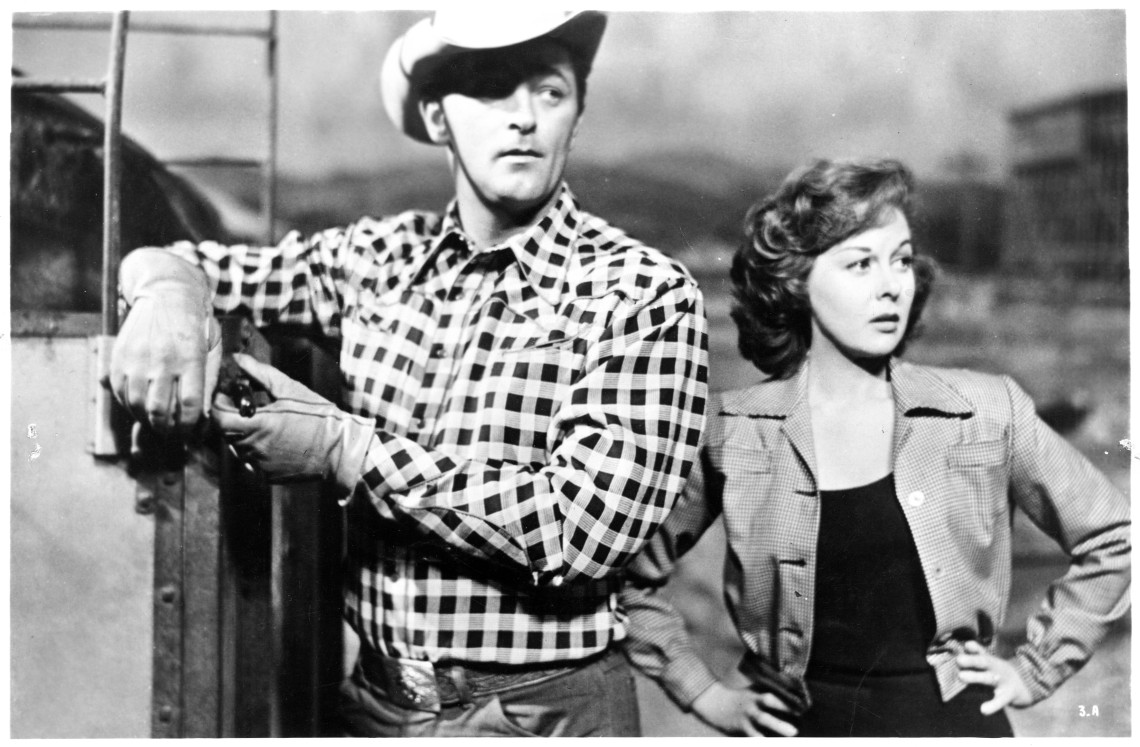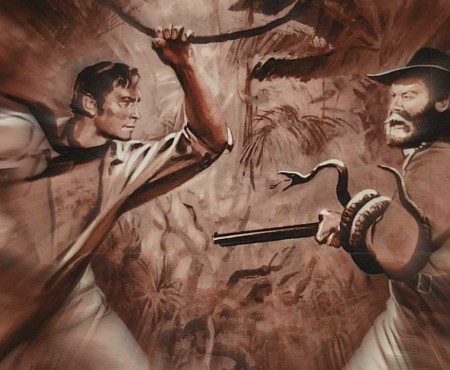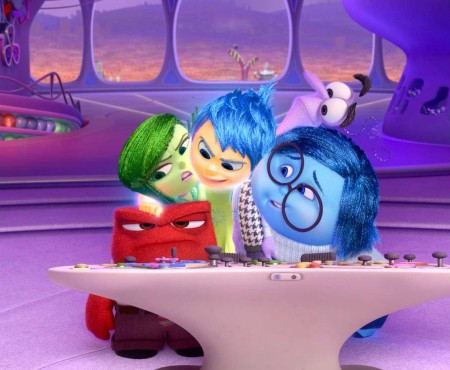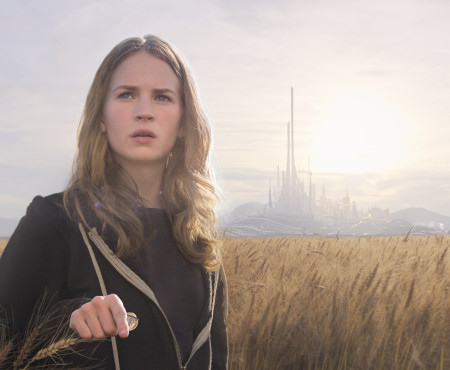Distributor: Warner Archive
Release Date: September 16, 2014
MSRP: $21.99
Order at Warner Archive
Film: B+ / Video: B- / Audio: C+ / Extras: n/a
Nicholas Ray’s 1950s films were topical critiques of contemporary American society, from middle-class aspirational culture (Bigger Than Life) to the ineffable generational shift and existential conflicts roiling within boomer youth (Rebel Without a Cause). If those films are often still relevant, it is 1952’s The Lusty Men that feels most predictive, its depiction of rodeo hands chasing whatever scrap of fame they can cling to an eerie precursor to a society obsessed with celebrity and even minor notoriety.
The film concerns two rodeo performers at the opposite ends of their careers. Jeff (Robert Mitchum) is the old legend, washed up from one too many falls and hungry for any excuse to feel close to the ring again. He finds that excuse in Wes (Arthur Kennedy), a broke farmhand who swiftly enters into a symbiotic relationship with Jeff, each exploiting the other’s eagerness to put themselves on the rodeo circuit. Before long, Wes becomes a star, and naturally his modicum of fame goes to his head and drives a wedge between him and Jeff. Scarcely in this picture at all is Wes’s wife, Louise (Susan Hayward), whose marginalization from the insular, combative, more-than-a-little homoerotic relationship between the two men is communicated as soon as the three meet, laid out in a shot that places the men deep background in the reflection of a folding windshield as Louise is separated from them both by distance and the dividing pane of glass.
That shot is one of many captivating displays that Ray scatters across the film. The movie opens with raucous energy, focused first on a town parade, then the rodeo it’s promoting, and the enthusiasm carries through to Jeff’s run, even after he falls off his bull and is attacked by the beast. The image shows horror, but the sound continues to suggest euphoria, a grim suggestion that such a sight is what people came to see in the first place. Yet the truly disturbing scene comes right after, as the sound suddenly cuts out to leave only the wind as Jeff hobbles through the now-empty ring after the rodeo, his hunched back and limping gait making him just one more piece of the refuse and litter blowing around the dirt. In subtler terms, the shots regularly stress the emotional distance between the characters by using blocking and lenses to distort and amplify physical separation, to the point that some shots of Jeff, Louise and Wes standing in the same frame look like composites drawn from individual shots of each person.
The Lusty Men has too long been a footnote in Ray’s career, though it perhaps contains Robert Mitchum’s most vulnerable, fragile performance, a precursor to the likes of Mickey Rourke’s work in The Wrestler, that of an imposing, hyper-masculine man driven to despair by the belated realization of how much they sacrificed to “be a man.” Existential despair is a hallmark of Ray’s best work, but the ragged emotions of his other films are replaced here by somberness, infecting even the vicious social climbing with resigned sadness. Ray has exerted an enormous influence on generations of filmmakers, but it is this relatively under-seen feature, with its muted gravitas and modern subject matter, that makes the director’s connection to future waves most apparent.
A/V
Touting a remastered transfer, Warner Archive’s DVD nonetheless shows numerous flaws, including scratches throughout. Generally speaking, the image still looks soft, though some shots do boast an uptick in clarity, especially in the more composed, interior scenes. Sound is equally modest, the mono track often muffled by the circumstances of its location shooting, which makes the foley effects of crowd noise and rodeo sounds even more tinny to the ear. Anyone who previously watched the film via TCM or VHS rips will recognize that the A/V presentation has improved, but it only leaves one wishing for a fuller restoration of a key work from one of America’s greatest filmmakers.
Extras
Warner Archive’s disc comes with a theatrical trailer.
Overall
Nicholas Ray’s most melancholic film finally comes to home video from Warner Archive, an occasion for celebration no matter how modest the package.




















